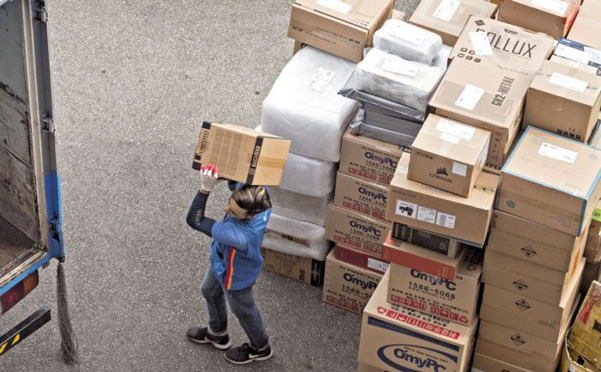Input 2021.01.21 15:32
The core of the agreement concluded on this day was to define the classification work, which was a major issue between labor and management, as “a task to classify the delivery of other people or the person (courier) from a large number of delivery services,” and clarify this as the responsibility of the delivery company. Until now, courier operators have cited the so-called’crackling’ as the main cause of overwork. Classification refers to the process of dividing parcels collected at regional hub terminals by area in charge and loading them on their own parcel delivery vehicles.
As a result, in the future, the courier will inject a manpower dedicated to sorting and bear the cost. If the courier operator inevitably performs sorting, the management must pay the driver a higher price than the cost of putting in additional sorting personnel. The agreement also included a plan to promote a plan to allow Korean foreign workers (H-2) to work places where manpower is difficult to find. At the same time, the agreement stated that the courier service provider should establish a plan for the automation of sorting facilities.

An official in the industry said, “It is ultimately best to reduce labor costs by investing in automation facilities, but the company’s liquidity is not good right now, so it is a big concern about how to proceed with the investment.” Another official said, “The courier’s operating margin is only about 1 to 2% of the total sales,” he said. “Even if you take away the profits, you are at the level of preparing an automation facility.” In this regard, an official from the Ministry of Land, Infrastructure and Transport said, “The government and the National Assembly plan to support the company’s facility automation through budgets and taxation in the future,” but companies are urgent to raise costs right away.
First of all, courier companies are planning to quickly implement the previously announced measures to prevent overwork while thinking about additional measures. An official from CJ Logistics said, “We will faithfully implement the agreement and, first, we would like to speed up the hiring of 4,000 classified personnel that we planned to put in by the end of March.” Lotte Global Logistics also said, “While reviewing the details of the agreement, we will put in 1,000 classifiers by the 1st of next month.” Hanjin said, “We will faithfully implement measures to prevent overwork and put in the promised 1,000 manpower by March.”
However, delivery drivers said, “Because the input of the sorting manpower announced earlier by the companies was not exclusively in charge of sorting, but an auxiliary role, it is now essential to supply and demand additional manpower.” Pointed out. There is also a prospect that discussions on raising parcel delivery costs will continue in the future as companies will inevitably bear additional costs, such as support for sorting personnel and expansion of automation facilities.
